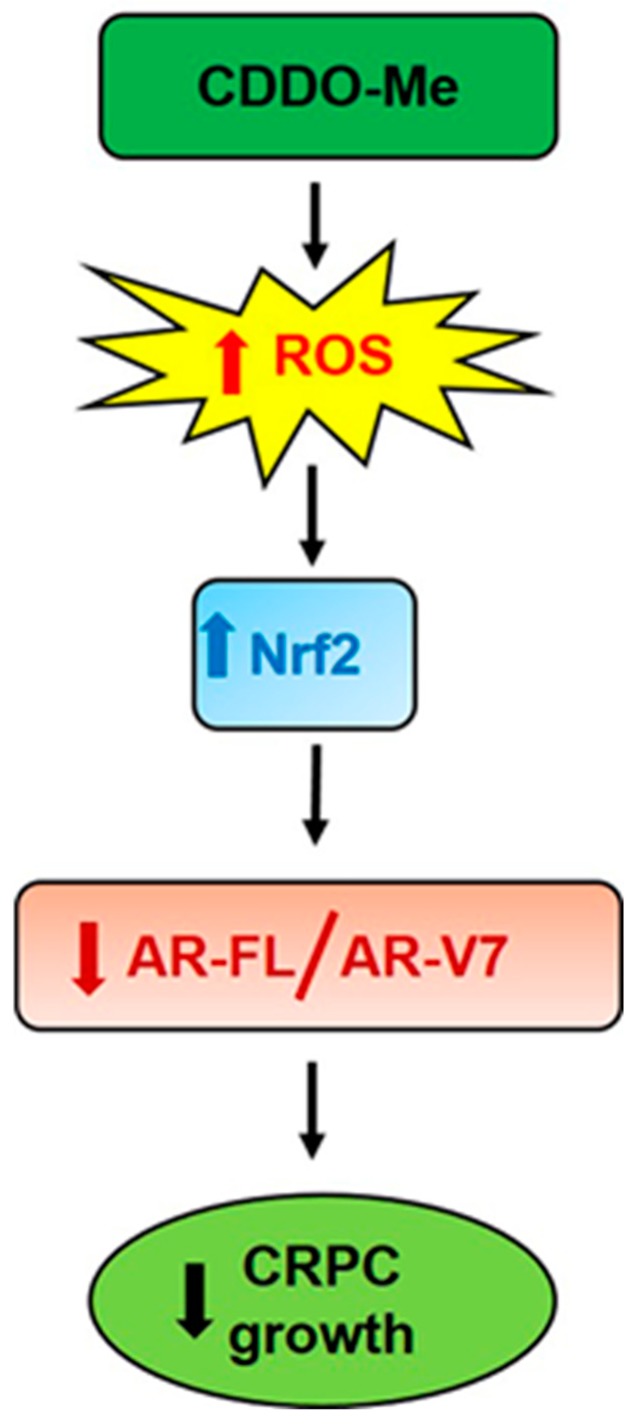Figure 7.
Mechanism of AR suppressive actions of CDDO-Me in PC cells. Exposure to Bardoxolone-methyl (CDDO-Me) causes a transient induction of reactive oxygen species (ROS) which in turn activates Nrf2 protein levels. Ultimately, this antioxidant transcription factor decreases oxidative stress and the aggressive properties of CRPC cells, e.g., growth, migration, clonogenic ability, etc. Both Nrf2 and ROS may be directly involved in suppressing AR expression (both at the gene and protein levels). Decreased AR signaling (via AR-FL and AR-V7) by CDDO-Me inhibits the growth of CRPC cells and can augment the anticancer efficacy of approved drugs like enzalutamide (ENZ).

